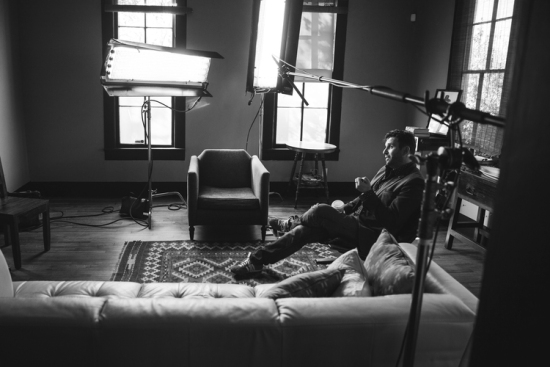TMB - Tips for Interviews

Since launching the Music Bed Community, we have interviewed dozens and dozens of filmmakers and artists from all around the world. We’ve flown to Paris. We’ve Skyped to South Africa. We’ve GChatted to Spain. And during all that time, we’d like to think we’ve not only gotten better at interviewing people, but that we’ve learned a few practical lessons along the way. We’ve written them down here.
Before we get into it, though, just a quick note about why we’re so into interviewing in the first place. It boils down to this: We think what other people have to say is oftentimes a lot more interesting than what we have to say. Given the choice between talking about what we know about filmmaking and hearing what Eliot Rausch knows about filmmaking…well, the better option seems pretty obvious. We interview because we’re curious, because talking to amazing people opens up our minds, surprises us, challenges us — and honestly, it’s usually a lot of fun.
The types of interviews we lean toward (and so, the types of interviews the lessons below are relevant to) are usually a bit more rambly, the kind that take twists and turns, that unfold, that linger a little longer on a subject than people otherwise might. In other words — they’re conversations. And while there is certainly a time and place for a more straightforward Q&A kind of interview, that’s not the type of thing we get very excited about.
Here’s everything we know about interviewing...
Make Your Subject Feel Smart
Great interviews happen when the people you’re interviewing feel confident, when they feel like they’re saying intelligent things and you’re genuinely interested in what they have to say. In some of our best interviews, we hardly ask any questions at all. Maybe four or five questions total over the course of an hour. A good interview/conversation should roll like a boulder, with you just course-correcting here or there to keep the thing on track. A bad conversation is like you trying to push a boulder up a hill. Zero momentum. A lot of times this lack of momentum comes from your subjects not feeling confident about what they have to say. They answer in a word or two. They, “Don’t know.” Suddenly you find yourself doing most of the talking, trying to put words in your subjects’ mouths, and leaving with nothing.
Go out of your way to make your subjects feel smart. Ask them easy questions at first (we usually spend a good five minutes talking about where the subjects are from) and be very interested in their answers. Affirm them. Just simple enthusiasm for their responses can go a long way to opening them up, making them feel comfortable — “No way! You’re from Long Beach?! I grew up in Long Beach!” or “You know, I never thought of it like that.” or “You know what, that’s a really good point.” The better your subjects feel about themselves, the better your conversations will go.

Let Silences Get Awkward
There is a natural human tendency to fill silences, to keep conversations moving forward, to do anything necessary to keep things from getting awkward. When you’re interviewing someone, silence can feel particularly devastating. It’s tempting to immediately step in, ask another question, make a comment — move things forward. But this is the wrong thing to do. After someone has answered a question, let her answer hang for just a few seconds too long.
Let the silence linger. What usually happens is the subject speaks up again. She fills the awkward silence, and she fills it by reaching a little bit deeper into her answer, saying something she might not have otherwise said. Be patient. Wait for those moments. Often the thing a subject fills the silence with is a unique and much more personal observation than her initial response.
We love how Philip Bloom opened up in our interview with him in 'Making Room'.





 Post a Comment
Post a Comment
Reader Comments